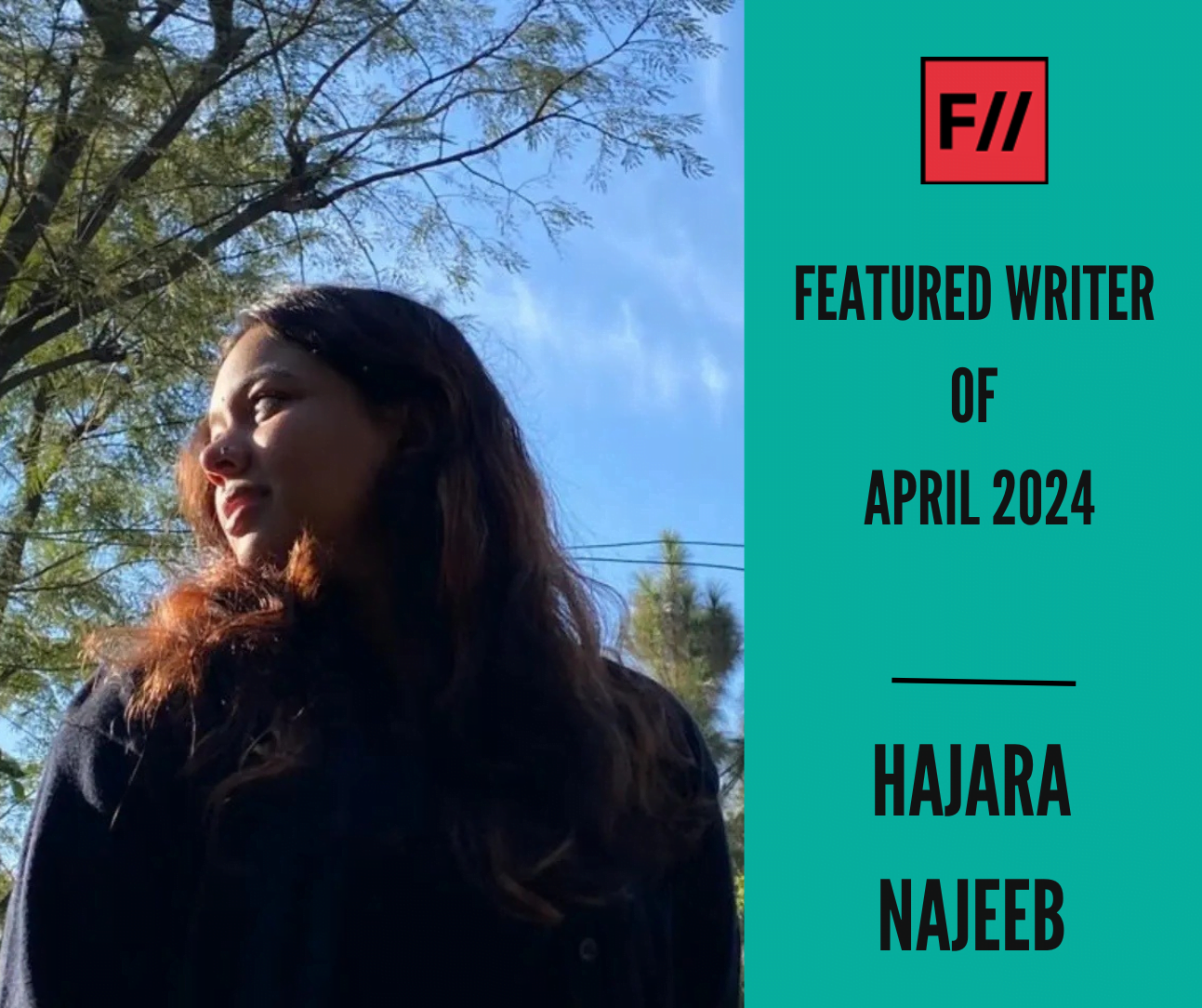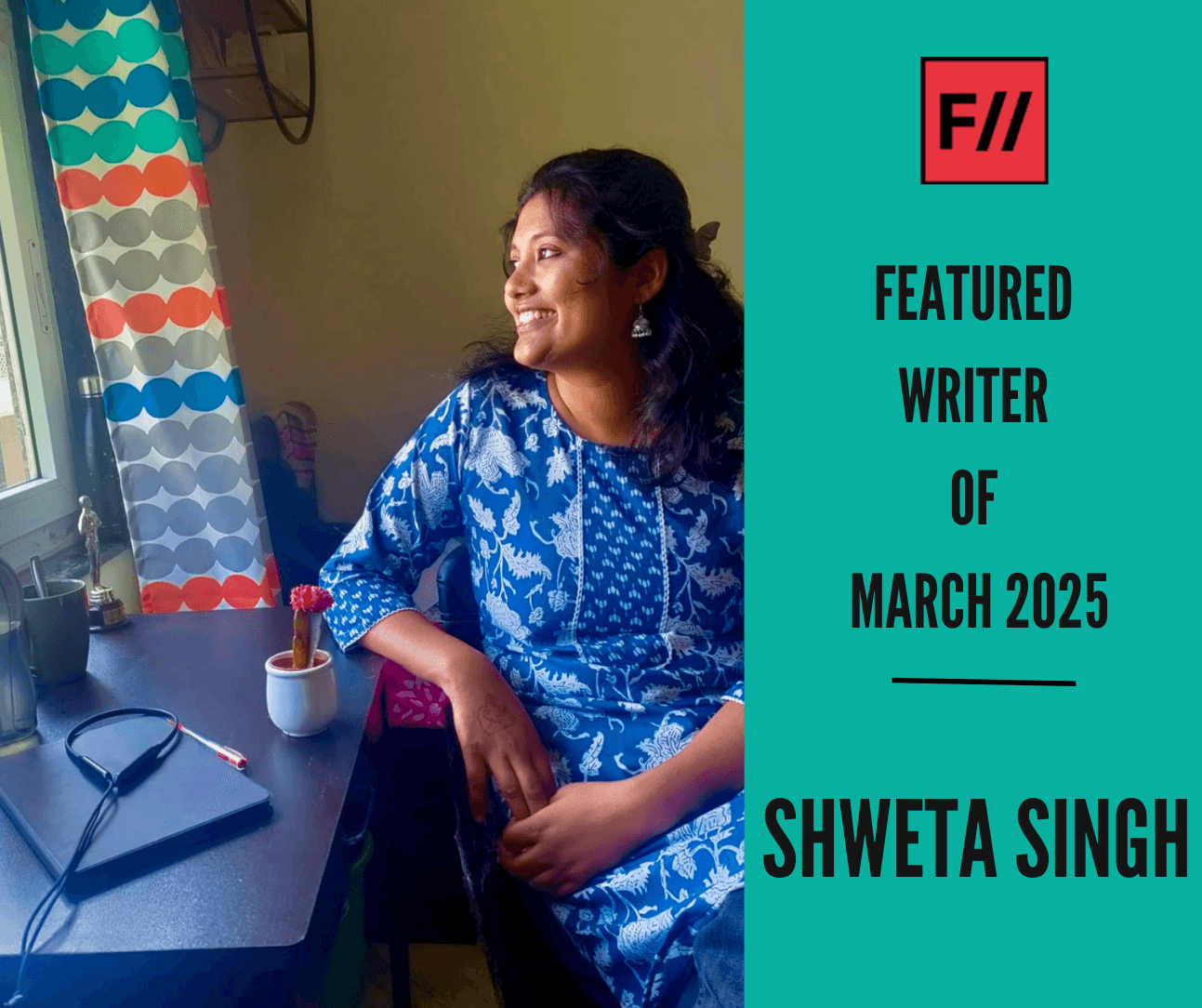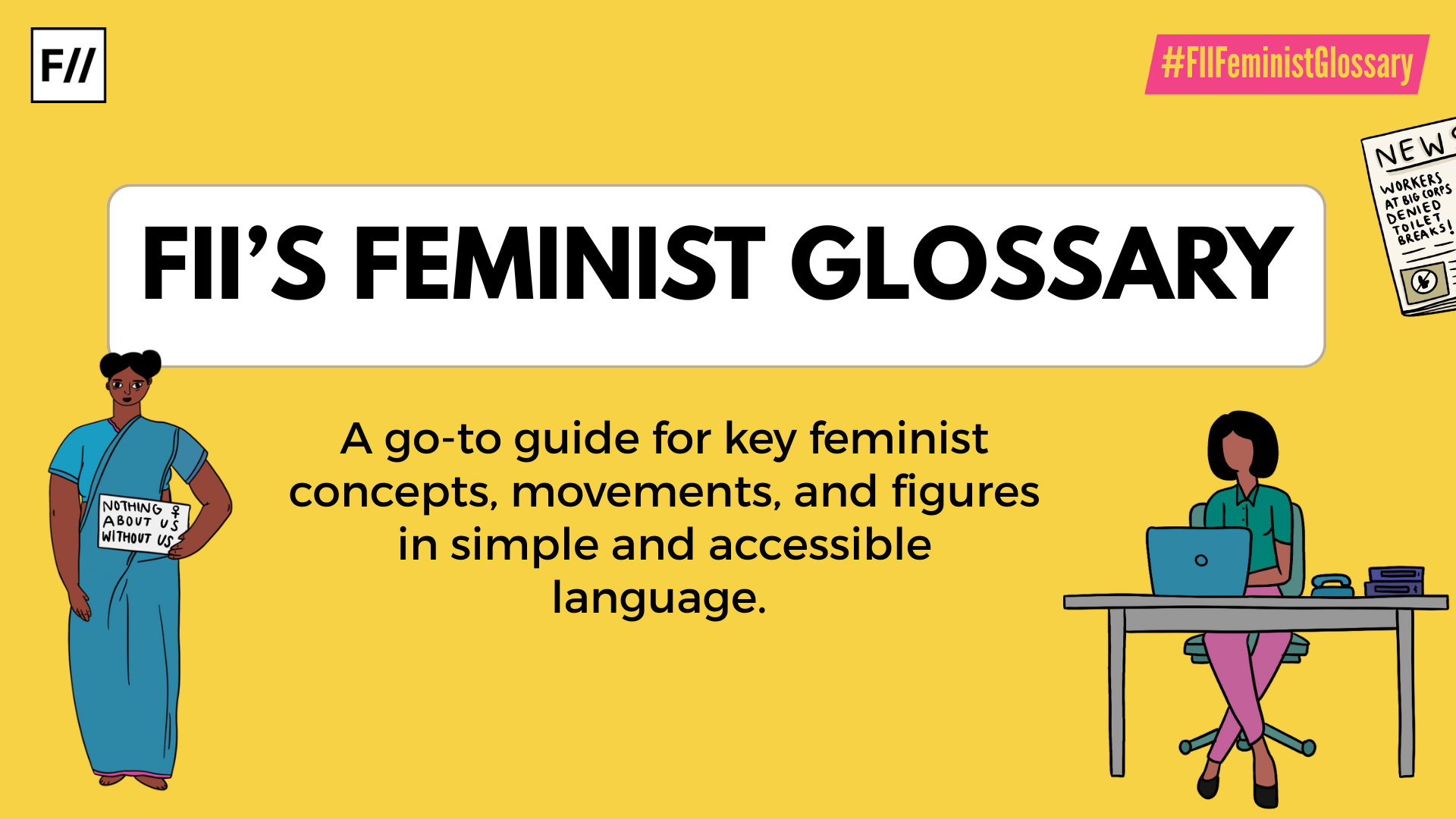We have been featuring the best writers from our writers’ community for their committed contribution to FII, making it what it is today. FII would not exist if not for the passionate and loyal feminist writers’ community that we have steadily been building over the last few years. This April, we feature Hajara Najeeb.
Hajara Najeeb is interested in topics concerning gender and minority rights. She also writes on cinema and its political implications. Hajara has graduated from Tata Institute of Social Sciences.
Some of her popular articles include Bollywood’s Love Affair With Hindutva: Films And Actors Aiding The 2024 Elections, Culinary Fascism And Cow Politics: How Food Is Used To Marginalise Muslims In India, Demolitions And Destructions: Masjids And Madrasas Become Hindutva Targets In Haldwani and Minority Appeasement And Hindu Suffering: PM Modi’s Hate Speech In Rajasthan among others.
FII: Tell us a little about yourself and what you do
I am a student interested in exploring the intersection of gender and minority rights. I have completed my Bachelors in Social Sciences from Tata Institute of Social Sciences, Tuljapur. I have worked as a researcher and writer for different organisations working on issues of development and the rights of Muslims in the country.
FII: How did you become a part of the FII writer family?
The graduation years at TISS really exposed me into issues of intersectionality. My understanding of feminism expanded to include various other social systems and seeing discrimination based on various identities. This helped me understand the nuances of gender relations and power politics.
The articles published in Feminism in India have been a part of our coursework. I remember reading an article by Sukanya Shaji on institutionalising period leaves and having a conversation with her on Instagram. During my final year at college, I was finally able to publish an article at FII. After being associated as a Freelance Writer for FII, I was able to write on issues of feminist and political nature. This gave me the assurance to identify myself as a writer and thus refining my work.
FII: How and when did you become a feminist?
Growing up as a practicing Muslim, the conflict of religion and gender was a topic of reflection. However, these ideas remained as temporary reservations. However, upon entering college and encountering diverse perspectives, my views evolved. Particularly, I began to appreciate feminism as a discourse for understanding social structures and their complexities. Along with this, the need to create a consensus on various systems of discrimination became imminent. As a Muslim woman, I recognised the importance of incorporating an intersectional approach into discussions of gender issues.
FII: Which issues within feminism are close to your heart?
Most of the pieces that I have written in this platform is of political nature. As a Muslim, it is important to talk about the socio-economic oppression and political abandon of Muslims in this country. Moreover, I feel it is important to amplify Muslim voices that talk about these issues.
Feminism as a concept is shallow without its intersectional nature. The systems of caste, religion and region has a major interplay in determining gender relations. Ignoring this would never establish the goals of feminist politics. Therefore, intersectionality and the various social systems should be embedded in the foundational discussions of feminist action and activism.
FII: What is your favourite piece on this site that you have written, and your favourite piece on this site that you have read? Why did they strike you?
I hope to improve my writing with each article I publish with FII. However, my favourite remains to be the one I wrote on the hate crimes and cow lynching happening in India titled Culinary Fascism And Cow Politics: How Food Is Used To Marginalise Muslims In India. I was able to articulate the information I had in the subject through the epistemic privilege I had in the subject.
Selecting a favorite piece from FII would be challenging, given its diverse range of topics. However, Sukanya Shaji’s piece on institutionalised period leaves titled Institutionalising Period Leaves: Does ‘Equal’ Mean ‘Identical’? stands remarkable for the impact it has created.
FII: What do you like to do when not writing about gender and social justice?
I like to watch films and venture into new genres of films. I consider cinema as the most effective form of mass mobilisation and opinion formation. I do not agree with the romanticised greatness of writing. There is no argument about its influence, but I believe there is a limit to the impact it can create, especially now. However, cinema proves to be of immense potential which also makes it immensely dangerous.
FII: What do you like about FII and our work? What more would you like to see from us?
FII as a platform has given me the independence in writing and publishing my work as I intend to. Along with this, the diversity of topics that FII deals with creates ample space for discussions that are necessary. I would love to see it venture further into these topics by giving space to more marginalised writers.
FII thanks Hajara for her timely and valuable contributions. We are incredibly grateful to have Hajara as a part of our writers’ community and appreciate her for her deeply informative writing.
About the author(s)
Feminism In India is an award-winning digital intersectional feminist media organisation to learn, educate and develop a feminist sensibility and unravel the F-word among the youth in India.




